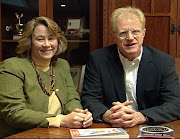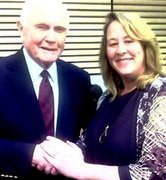Wax Philosophic
By Kelley Bell
In old Europe, the individual was taught to believe that their personal worth was naught. They understood themselves to be insignificant parts of the whole. Just imagine a poor illiterate serf walking into one of the grand stone churches, during the middle ages. The massive scale of the walls, combined with the ornate trimmings, and holy reverence; the walls themselves spoke, loud and clear, to the impoverished masses:
You are tiny. You are irrelevant. GOD is ALL.
Behind this message, was the conflicting idea that each individual had a chance for redemption. The lowly serf could earn entry into the gates of heaven by taking a vow to Love God, by means of committing loyalty to the Church.
The Clergy taught these people that their lives were meaningless without God, and the Church was partially right. People who joined, found that there was indeed a spiritual component to life, that added a fourth dimension to the human experience. The dogma of the church brought meaning, order and hope in the form of entertaining stories and moral parable.
The Church served a purpose. It made it possible for the ignorant uneducated toiling masses, to enter the world of philosophy, and reap the rewards spiritual consciousness, without paying the price, of a lifetime of study. It also served a political purpose, as it used the pulpit to organize communities into coherent cooperatives of social order.
Along comes Renee Descartes, the mathematical philosopher, with his concept of The Mechanical Universe. The world, and everything in it, he argued, could be explained in terms of a machine, like a clock.
Clocks were a very new thing, and watching a clock tick off the seconds was an amazement; a changing force in society. Descartes mused on a Reductionist platform that turned the world on its ear. Illness was not a function of evil spirits infecting the unrepentant sinner in need of exorcism, but simply a function of a machine whose parts were broken. He did not need the church to explain the world to him; he claimed that he could figure that out for himself, through scientific observation of the machine.
This was a HUGE SHIFT for humanity, and a severe demotion for The Pope!
Secular Humanism was born from this idea. Secular Humanism is a Renaissance era philosophy of self-realization. It. advocates reason over religion, centering on the values, capacities, and worth of the individual. Scientific thinking flourished from the seed of this radical new worldview. Modern Medicine departed from spiritual shamanism, and turned to the mechanics of the body, looking at each piece and part of the machine. The philosophy of Reductionism took hold in the Age of Reason.
The Wax Argument was Descartes proof that "what I thought I had seen with my eyes, I actually grasped solely with the faculty of judgment, which is in my mind." He describes a piece of wax, its shape, smell, color, etc. Then he heats it with a flame. The wax changes, but he realizes that even though it is now liquid, it is still wax. His senses are describing something completely different from the solid, yet in his mind, he knows that it is still wax. Therefore, he concludes that he cannot use his senses to interpret the world. (Thus, we have the famous term, "To Wax philosophic.")
Descartes would love the more modern experiment where a scientist created a pair of glasses from two prisms, which caused him to see everything upside down. After about a week of wearing his Prism Spectacles, his brain figured out a way to reinterpret the data, and he suddenly began to see everything right side up, even though he was still wearing the glasses! When he took them off, his brain made him see everything up side down again. Slowly, over a period of days, individual objects, like cars and trees would flip back upright in his topsy turvy vision, and then eventually the whole world righted itself again.
What does this tell us about the way we perceive the world? It should tell us that our perceptions could be flawed, that nothing is concrete. It should teach us to question and test all of our beliefs, and then test them again.
The time has come for humanity to once again test its topsy turvy views, and turn things up side down. The mechanistic thinking of Descartes was wonderful in its era, and led us to where we are now. But what was once hailed as a grand new view of the universe, is now just another flawed system of thinking. Modern medicine would not exist without Descartes, but a mechanist view of the body is now revealed to be an oversimplification of living systems. The old mechanics of primitive machines have been replaced with nano chips and lasers. The world has changed, as it must. We must change with it. We can no longer hold on to our Reductionist, Mechanistic views, any more than the people of the Middle Ages could hold on to their supernatural views.
Plato's Theaetetus defined knowledge as “justified true beliefs”. One cannot be said to "know" something just because one believes it. A sick person, who believes he will get well, just might recover, but that does not mean that the belief is responsible for the healing. The belief lacks justification. Knowledge, therefore, is distinguished from belief by justification. We must use this questioning and justification principle to solve our problems, and that means reevaluating everything we believe.
I believe that we stand now at the beginning of a new age, a time when we are embattled in a war of ideas, struggling to determine which ones will stand up to Plato's Theaetetus, and which ones will diminish. Letting go is hard, as Galileo and Bruno could attest. These progressive thinkers were imprisoned and burned at the stake for daring to challenge the model of the cosmos promoted by The Church. The Church felt threatened, because such a shift of ideas would diminish its power. So the Church fought back. The violence we are seeing today mirrors the violence of the Inquisition. The people in power fear new ideas because they know that the power base will change. They cling to the old and push extreme fundamental views with violent fervor. It is violence based on fear.
We fear change. We fear the unknown. We fear any idea that threatens our beliefs. It is part of the human condition. Just as the abused child will emphatically defend the neglectful parent, society also clings to what it has known, without regard for what is best.
Religion has fought against the forces of secular humanism for centuries, to the benefit and detriment of us all. Both models have served humanity, and both have failed. Both have limitations. Here lies the dichotomy of the human condition. While we fear change, we also have a deep drive to expand our minds, solve problems, and go beyond all limitation. Maybe that is why we cling so desperately to God, for death is the ultimate limitation, and in our minds, we must transcend.
Systems Theory and Quantum Physics will be the next step of transcendence. Systems Theory teaches that we are all part of the whole. The tree can not live without the birds who eat its fruit, the bees who pollinate the flowers, the worms who till the soil, or the oxygen breathing mammals that surround it. The tree can not be seen as a mechanical thing in a Reductionist model. It must be seen as part of a huge interdependent living system. Quantum Physics teaches what the things in the system are made of, at a sub atomic level. Here we learn that everything is made from the same basic stuff: Atoms and electrons, and energy. We learn that this energy is not solid, not static, but dynamic. We learn that matter is not even a thing at all, but a probability, and oh, how that changes our perceptions of the world!
As science explores these realms, new ideas will filter into our shared perception of reality, and alter our belief systems. Our prism spectacles will not only turn things upside down, but inside out, and upside in. We will accept science as a way of explaining the Universe, and with this knowledge, we will again ask the age-old questions: Why are we here? What is our purpose? What is the origin, structure and meaning of life?
When we do this, we will find new answers, answers that will, (hopefully,) promote a peaceful cooperative, for a sustainable environment, with reverence for the human need to be part of a community. We will create new spiritual beliefs, built upon the synchronicity of science, and the epiphany of human experience. We will restructure our communities by replacing hierarchal models of control, with philosophies that flow in harmony with nature. This is the feminine principle. It is a model for humanity that tells us that we are part of the universe, just as the universe is part of us. It teaches that we are no more or less important than any other living thing, in spite of our limited point of view.
The time is near when we must leave the house of Our Father, and venture into the world on our own. We must find our own path, build our own home, give birth to new ideas, and watch the world evolve once again.
Subscribe to:
Post Comments (Atom)





























11 comments:
I really enjoyed reading this.
I think that you said it perfectly in that we "perceive" things but don't actually "see" them. This of cousrse, opens up a whole new can of worms in that subjectivity negates any absolute truth, justice, right or wrong. We still, however, attempt to order the chaos that is our world, raising children to believe in a black and white state of things with absolutes, etc. Of course we need to make some order of things to avoid reverting back to the state described by Thomas Hobbes, but the question remains as to where this line must be drawn. People will never agree 100% on anything. as a result, we can never be free of chaos unless we deny our selves and perhaps dive headfirst into a religion or something, just as folks were shepherded in pre-Descartes.
Perhaps chaos is the only absolute....
Hi Real. Thanks for stopping in. And double thanks for taking the time to read and comment on such a long winded post.
Chaos. Hmmm,
I think I know what you mean by that. ie: getting all humans in a group to agree to a set of laws and beliefs, as a means for social order.
But I question the need for too much conformity. This leads to supression of the individual, and this is key.
What the group does only has meaning to me in context to my experience. Therefore, the meaning of life, must somehow relate to the individual.
Some people describe nature as chaos, and it can be at times, but I find such peace and harmony when I walk in the forest or stand on the beach.
Sometimes Chaos comes from attempts to control.
I guess it comes down to finding the middle ground. The balance of Yin and Yang, Male and Female, Natural and synthetic, compassionate and cruel.
Life needs balance. We are out of balance because we have been creating chaos with our attempts to control the planet and the people on it.
Maybe its time for a change.
Hi, another 2 cup post. I look forward to your introspectives. I think I agree with much of what you say (I'm just not very articulate). Some of the themes that I find attractive are: If our knowledge of "God" is revelationary or evolutionary there is no reason that it should have stopped 2000 years ago. Science is an off shoot of religion and therefore will either form a partnership with religion or become the new religion. Things probably work in harmony, even if they sometimes appear as chaos to us. I keep returning to the Buddhist example of the wheel , with many paths leading to the same end. I have a concept of God as pure energy and we are all part of God and collectively with the rest of the universe make up God. It is something I need to bounce off a few people to try and refine a little bit.
(sorry for the delay in commenting, I get called in at work and I didn't want to give a flippant reply, OR wait too long to answer, so this is sort of a compromise till we can discuss it more. Great work as always!! What triggered the introspective mood?)
Regards.
Greg
Playing devil's advocate, isn't it necessary to sometimes supress the individual in that the needs of the many outweight those of the few. Without defined social structures, as i stated earlier, we are proned to a Hobbsian or basic animal existence. That may not sound too horrific at the outset, but think of how animals live: all senses on full alert, a deer stands in the forest, eats a bit of grass poking up for the snow, then a scent comes into his/her nose...PANIC...smell passes, must eat.
The concept of individual freedom lies in the idealism that all people will want this freedom and thus respect the freedom of others so they can practise themselves. For this freedom to exist we would have to suppose that there is an instinct within us that allows us to recognise it for what it is, yet our conditioning to a specific perspective begins at birth. After all, few children are raised Catholic and becom Muslim or vice versa.
This leads us to chaos, the need for limiting individual freedoms in order to exist in a status quo environment.
Then there is the whole thing of Jung and his essay on symbolisms... what is the individual freedom that you are referring to and what is my perception of this freedom.
Chaos.
Wonderful comments!
This was a long post on a tough subject.
I bow to you both for your stamina and insights!
So, is chaos evolution? Therefore we have good chaos and bad chaos. Some will make us stronger and some will make us head for extinction. We allow a certain amount of dissent and see where it leads. By limiting dissent we allow for gradual change that should allow us to pull back in time if we make the wrong choice. We should therefore except a certain amount of chaos in order to evolve to a higher state. If change is constant it is the degree of change we can argue over and not the need for change. When we stop changing we are in trouble? The perceived lack of change gives us comfort because we can rest and enjoy it. We may never feel comfortable with change because we have to always decide if it is good or bad , in the long and short term. I hope you 2 realise that I am at a disadvantage because I talk with my hands and you are missing this expressiveness! According to my calculations we should meet in Grand Forks N.D. at an outdoor cafe and really hammer this out for the benefit of humanity.
LMAF!
You are right. We should do just that!
My position, for starters, shall be:
Do as you will, but do no harm.
This is the only law (or commandment) of the Wiccan and Pagan traditions. It pretty much covers all of the ten commandments in one simple sentance, while at the same time respecting free will.
Where we get in trouble is when we try to control.
We are all natures creatures. Nature is not always kind. We must accept that our fate is to flow with nature, not control it.
-maybe I could articulate this better after one more cup of coffee...I have a point here, but I dont fel that Im making it well.
To "Do as you will, but do no harm" is a nice concept, but in reality, we often do things that we think are not causing any harm. Let us remember things like the Residential Schools for Natives in North America. What might have been good intentions by some, though a control tactic by others, lead to several social problems. As every action has a reaction, what we may interpret as being harmless may be tragedy for another. I don't think that we possess a truly rounded view of things to make impact-free decisions, especially as we are abstract thinking beings and not entirely instinctive.
As for chaos, I don't know if we can really measure it in a qualatative manner. I suppose sometimes chaos in a piece of music or sport can be fun, just like flying by the seat of your pants can be fun, but it can be equally terrible in the case of shots being fired or a riot. Again, language limits us, whether the word is chaos, love or hate, and is dependant on context: i.e. I love coffee, I love my daughter and I love my wife - all these statements utilise the same the verb but with very different weights.
So True. So true.
The do as you will doctrine, would only work if, for instance, the Native Peoples spoke up and claimed that having their children ripped from their homes was harmful (which they did.) The law would then stop the Christians from their intrusive activities.
But as it is now, the culture in power decides what is right and what is moral for everyone, based on their own beliefs and objectives.
Chaos.
Another aspect to this, is what I call reactionary policy making. Basically, whenever there is a tragedy, or someone gets hurt, we react to "make sure it never happens again."
Its sloppy fear based politicizing, that leads to...
Chaos.
"Ashes to Rust
Dust to Kings
The Chaos of Things is Only the Crust
Beneath the Surface We Swim in a Brew
But Oh What a Glittering Stew!"
-Garnet
Did you know you can shorten your urls with AdFly and get cash from every visit to your shortened links.
Post a Comment